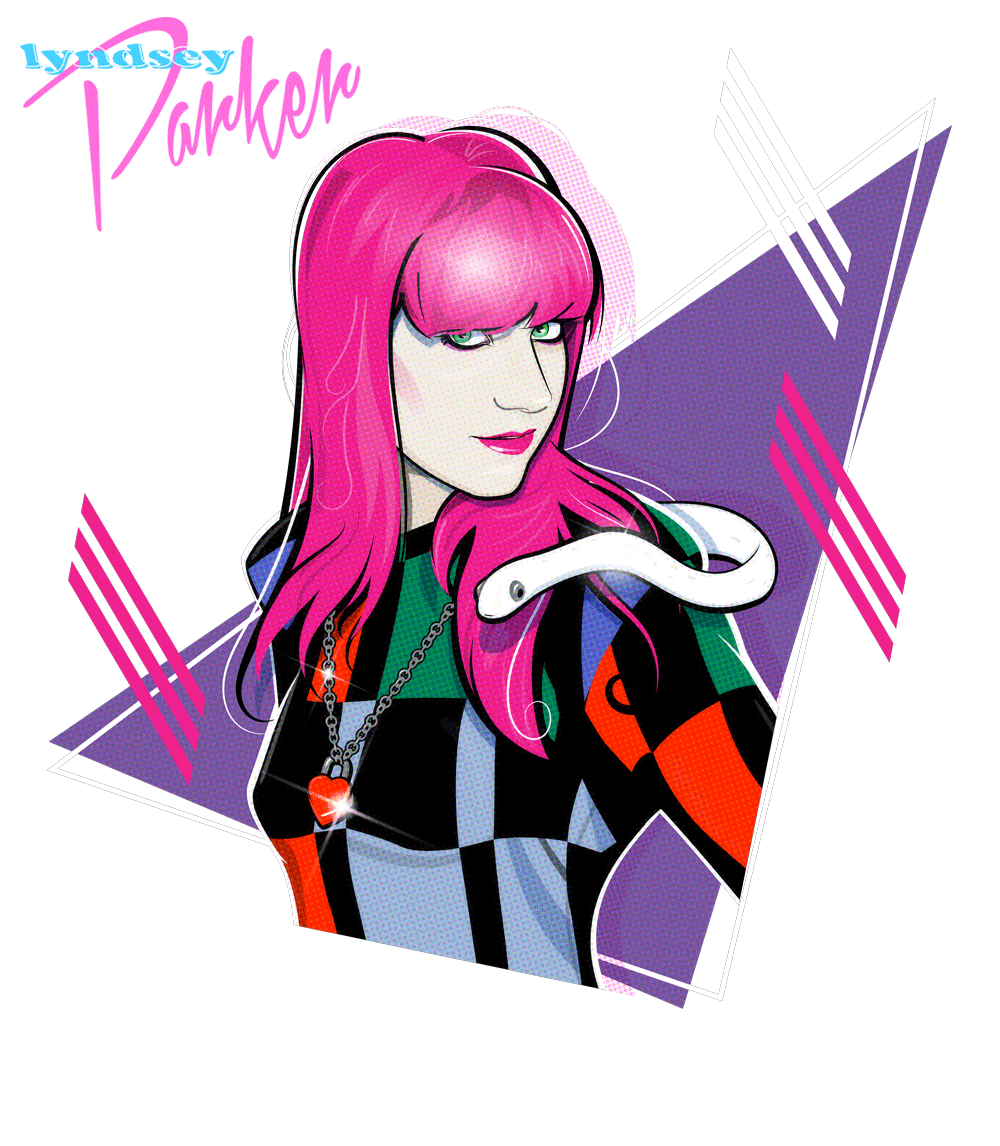It has been almost a decade since Sheryl Crow released Detours, which she recorded shortly after she very publicly split with cyclist Lance Armstrong and completed breast cancer treatment. But the album — and particularly one track, “Make It Go Away (Radiation Song),” with its crushing lyrics like “I crawl into my circumstance/Lay on the table/Begging for another chance/I was a good girl/I can’t understand” — still resonates with her fellow cancer survivors.
“That song is really about having cancer: ‘I’m a nice person. I’m a healthy person. How did this happen?’ The whole album is just about the fact that as much as we think we control all the events in our lives, we really have no control over much at all,” says Crow, as she sits with Yahoo Music for her career-spanning Backspin interview. “I had people coming up to me in Starbucks or in the women’s bathroom at the airport saying, ‘I’m a cancer survivor’ or ‘I had breast cancer,’ and talking to me about their experience. It is an odd thing that the community, of particularly breast cancer survivors, they find each other, and there is a common language there about nourishing and nourishment and self-nurturing — and the lack thereof when it comes to women. … That song became sort of a mantra. I still have a lot of women who come up and talk to me about it. And that is a gift to me.”
Unfortunately, Crow’s label wasn’t quite as enthusiastic about Detours. “I handed it in to Interscope and they were like, ‘It’s a lovely record, but nobody wants to hear this kind of stuff,’” Crow recalls ruefully. True, Detours wasn’t her most successful release — it barely went gold and “didn’t jump off the shelves at Tower Records”; compare that with her first two albums, which sold a combined 13 million copies. “But I still contend that there’s stuff on that record that has its place. … It meant something to me,” she says.
This wasn’t the first time that Crow didn’t see eye-to-eye with a record label. When she first signed to A&M in 1992 after garnering attention as a background singer on Michael Jackson’s Bad tour, there was “a lot of interest in my making a pop record, like Paula Abdul or Lisa Lisa & Cult Jam, what was happening then — like Madonna. And I didn’t want to do that. I wanted to do the stuff I’m doing now.” Crow was so unhappy with the resulting recording by Phil Collins/Human League/Sting producer Hugh Padgham (the bootleg of which now sells for hundreds of dollars on eBay), she begged A&M not to put it out. “Then I sat around for a really long time, went back to waiting tables, and started hearing around town that I was about to be dropped,” she reveals.
Crow convened with a group of L.A. musicians known as the Tuesday Night Music Club, which led to her official debut album of the same name. Even then, there was no overnight success — the record didn’t click with the public until the release of the third single, “All I Wanna Do,” an afterthought track that almost didn’t make the album at all — but eventually Tuesday Night Music Club went septuple-platinum, and Crow won her first three Grammys, including Best New Artist, in 1995.
However, Crow’s hard-earned and long-deferred success was bittersweet. Many of the Tuesday Night Music Club musicians with whom she had collaborated begrudged Crow her success as her star rose, and a bitter backlash ensued.
“‘All I Wanna Do’ came out; the record became so huge, and clearly it had my name on it, and there were people that speculated about whether the guys made the record for me,” Crow grumbles. “Some of the guys in the group were resentful that they weren’t dragged along as the band. Initially, when I had asked everyone to come out on the road, they all had their own things going. But I don’t think anybody thought the record was going to take off, so then when it did take off and everybody wanted to be in the band, I already had a [new] band that I wanted to be loyal to. People’s feelings got hurt.
“And nobody defended me — that was the other thing,” Crow stresses. “It did burn me. There wasn’t anybody that stuck up for me, and that’s why I think the second record [1996’s Sheryl Crow] did give me the opportunity to sort of clear up some misnomers. … I think the thing that I wanted to do on the second record was to do anything but part two of the Tuesday Night Music Club record. I was really ready to put that album away, and I was ready to put away everything that went along with it — all the ugliness, all the stories that were built around it. I had really kind of dug a place in the sand to kind of hide, and when I went in to make the second record, I felt like, ‘This is my opportunity to just satisfy myself.’
“[Lead Sheryl Crow single] ‘If It Makes You Happy’ was really, I think, it was the answer to all the people that were not only naysayers, but the people that were kind of propagating falsehoods, that we’re making a ton of money off the first record. ‘The Book’ was a heavy song about being betrayed. … I don’t know what the second record did except to say, for me, it gave a new start. And what I find is, there are people that are loyal to you no matter what, and then there are people that are going to be naysayers no matter what.”
Crow was 30, relatively old by music industry standards, when she finally achieved mainstream success. By the time she turned 40 and was getting ready to record her fourth album, 2002’s C’mon, C’mon, she once again felt at odds with the music industry — which had become much more pop driven than it was in Crow’s ’90s heyday, when “really strong, very opinionated women” like Alanis Morissette and Lauryn Hill dominated the charts and the Grammy Awards. “What was at pop radio was Britney Spears, Christina Aguilera — all these girls were like 18 or 17, and here I’m turning 40, and I’m not married and I haven’t had kids. I just felt like, ‘Oh my God! I’m old and I’m not going to be relevant anymore, and I haven’t had kids, and I can’t take off time until I’ve made this record!’” Crow confesses. “It was just like a giant snowball of stress that really undermined my being able to be inspired.”
Eventually, after taking some work/life balance advice from fellow female rock icon Chrissie Hynde, Crow learned how to relax, and C’mon, C’mon was a hit off the strength of the summery singalong “Soak Up the Sun,” one of her biggest singles to date. (Interscope, which had by this point absorbed A&M, hadn’t expected C’mon, C’mon to be successful: “When I handed in the record, Interscope still was like, ‘We don’t know what we’re doing with this artist. We have no idea. We’re into the Pussycat Dolls and No Doubt, and what do we do with this?’ So, the fact that they did get a hit out of it was great, because they were in no way, shape, or form big Sheryl Crow fans,” Crow points out.)
“I turned 40 and it was the best year I ever had, and the record did well,” says Crow. “It was just like a year of ‘Hey, life isn’t over just because you’re 40. You still have something to say, even though what’s happening at radio isn’t at all what you do, and it’s geared to younger and younger and younger.’”
Crow went on to experiment, with varying degrees of commercial success, with holiday music (2008’s Home for Christmas), soul (2010’s 100 Miles From Memphis), and country (her 2002 “Picture” duet with Kid Rock and 2013’s Feels Like Home, which featured a who’s-who of Nashville superstar collaborators). Now, at age 55, she has returned to her early sound — reconvening with Sheryl Crow producer Jeff Trott for her latest album, Be Myself — while balancing her music career with being a mother to her two sons, Wyatt (whom she adopted right around the time of Detours) and Levi. And these days, Crow, a true survivor, seems much more at peace with the aging process than she was around the time of her 40th birthday/C’mon, C’mon midlife crisis.
“I feel an immense amount of liberation being my age,” Crow asserts, crediting this attitude partially to the fact that she didn’t become famous and successful at an extremely early age, and also to the fact that her ’90s appeal was never rooted in blatant sexuality.
“I look at my first album, and I think, ‘Oh, my gosh, I tried so hard not to project myself as being pretty,’ because I wanted to be taken seriously. I wanted to be perceived as a strong artist, not as some tart or some gorgeous model-y [starlet],” Crow laughs, and then continues more seriously, “With regard to sexism and with regard to women in power, the greatest power you will ever exemplify is the power of integrity and the power of being awake and being present and having something to say, and not projecting sex and sexuality as your only means of power. … We as women need to embrace who we are and empower that aspect. … There’s a whole other population in the world of people that are adults, who are on a trajectory of truth, that can relate to the images of women who are my age who do have something to say and that do project sensuality in a way that is powerful and not sexualized.”
Adds the Be Myself singer with a shrug: “I’ve chosen to just embrace being my age and to be older. I know that there is a population of people out there that will respect that and like that and be drawn to it. And there are also people that will look at my face and go, ‘She’s old and I’m not gonna buy her record.’”
Follow Lyndsey on Facebook, Twitter, Instagram, Google+, Amazon, Tumblr, Spotify
This article originally ran on Yahoo Music.







